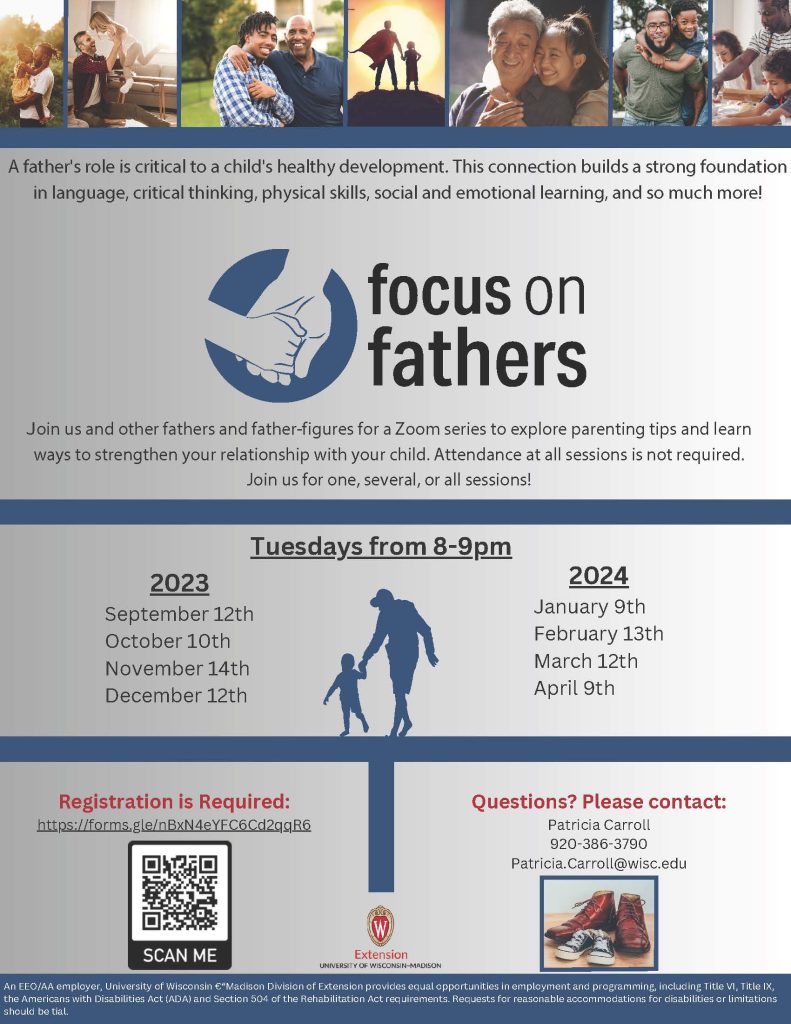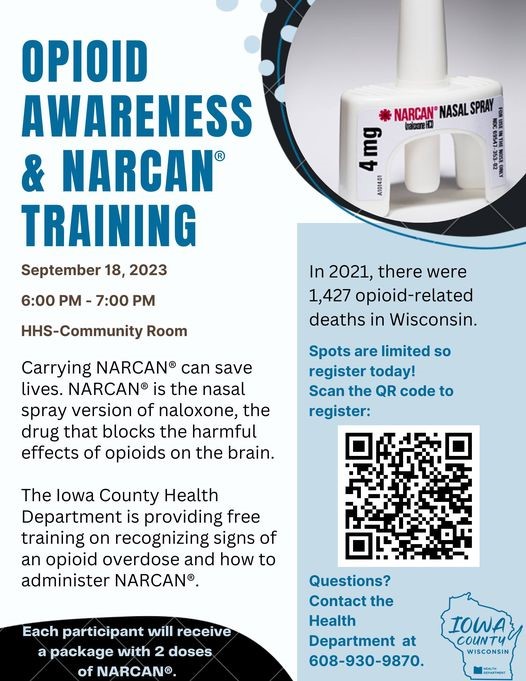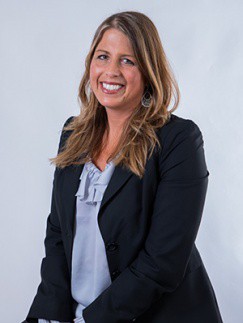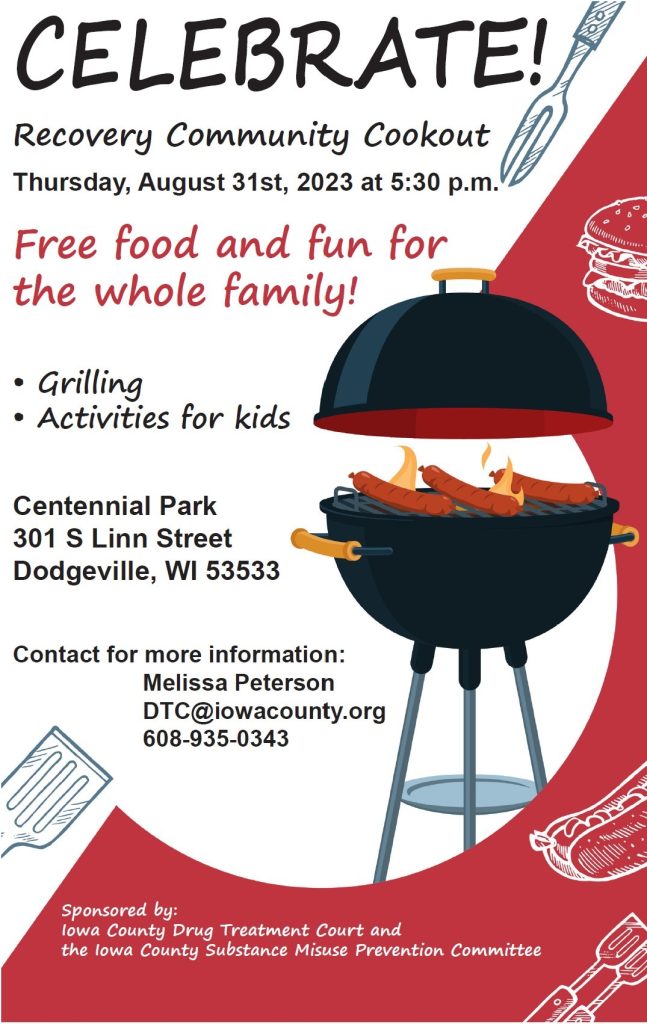
Fathers are vital to children’s healthy development! Check out this Zoom series to empower Fathers!




Dr. Laura Palombi
Want to know more about the risks associated with fentanyl and xylazine? On September 6, 2023 join Dr. Laura Palombi on a FREE webinar at 12pm Central Time.
Description: This presentation will review the history of fentanyl and xylazine in the United States drug supply, compare the pharmacology of fentanyl and xylazine, and describe how fentanyl and xylazine can cause toxicity and overdose, separately and together. Attendees will review the pharmacology of naloxone and its utility in reversing opioid overdose. Participants will also be able to describe harm reduction strategies to reduce overdose and other harm resulting from fentanyl and xylazine use.
Register for the FREE webinar at the link below:

We look forward to seeing you on Monday August 28th at the Eckstein Building (fairgrounds) 916 E. Elm Street, Lancaster, WI 53813.
The events for the evening are as follows:
3:15-3:45 pm: Arrive, set up and mingle
4:00-6:00 pm: Resource Fair/Backpack Pick up for families
6:00 pm-6:30 pm End/Clean up
GRANT COUNTY COORDINATED SERVICES TEAM
8820 HWY 35 and 61 South, P.O. Box 447, Lancaster, WI 53813Phone: (608) 723.9763Fax: (608) 723-4834 “Community Commitment to Families”

With the recent loss of more than 10 million workers from the American workforce, it’s no wonder people are feeling overwhelmed at work!
The good news is that Unified Community Services can help.
Unified daily serves people with suicidal thoughts, addiction-related challenges, and varying degrees of mental illness. Reach out today to learn how you can empower the people who are your business, organization, or team to become more skilled at
Our rates are affordable. We can’t wait to help you and your team thrive!
Reach out today at bbiddick@unifiedservices.org to learn more.
FREE food and fun for the whole family!
Thursday August 31, 2023 at 5:30pm
Centennial Park 301 S Linn Street Dodgeville WI 53533

The Iowa County Substance Misuse Prevention group recently brought former BMX Olympian Tony Hoffman to Dodgeville High School to speak about his experience with addiction.
For the second time in recent history, Tony has shared with Southwest Wisconsin the importance of mental health and preventing substance misuse.
To hear more about what Tony shares, go to Tony Hoffman-Top Mental Health Substance Use Prevention Addiction Recovery Speaker — Tony Hoffman (tonyhoffmanspeaking.com)
If you’re interested in accessing mental health or addiction services, please contact Unified Community Services.
Local Media: Olympian Tony Hoffman set to speak about his battle with addiction at Dodgeville High School (nbc15.com)
Publication Date: August 30th, 2022
Brightly-colored fentanyl is being seized in multiple forms, including pills, powder, and blocks that resemble sidewalk chalk. Just two milligrams of fentanyl, which is equal to 10-15 grains of table salt, is considered a lethal dose. If you encounter fentanyl in any form, do not handle it and call 911 immediately.
This is a good time to reflect on your drinking pattern and the role that alcohol plays in your life. Most adults in Wisconsin who drink alcohol drink moderately and without complications. At the same time, alcohol-related problems are among the most significant public health issues in Wisconsin.
• For most women, moderate drinking is no more than one standard drink a day.
• For most men, moderate drinking is no more than two standard drinks a day.
A standard drink is equal to 14.0 grams (0.6 ounces) of pure alcohol. Generally, this amount of pure alcohol is found in
• 12 ounces of beer (5% alcohol content).
• 8 ounces of malt liquor (7% alcohol content).
• 5 ounces of wine (12% alcohol content).
• 1.5 ounces or a “shot” of 80-proof (40% alcohol content) distilled spirits or liquor (gin, rum, vodka, whiskey).
https://www.dhs.wisconsin.gov/alcohol/index.htm